Feb 11, 2016 | Non categorizzato
“OnCity: Networks of light to inhabit the planet” is the title of a workshop on international citizenship that will take place on April 1-3, 2016 at Castel Gandolfo Conference Centre, Italy. The conference is organised by the New Humanity Movement, Youth for a United World and the United World Project which are all agencies of the Focolare Movement that are engaged in promoting brotherhood among generations, individuals, groups and peoples. We are challenged by current events: bombings, terrorism, new forms of poverty and marginalisation and a piecemeal world war. Cities are in trouble, suffering from contradictions that everyone can see. But there are also positive experiences which show that it is possible to work, believe and hope for more liveable and fraternal cities. The three-day workshop will examine changes taking place in today’s cities and present a lifestyle of dialogue. For information and reservations: oncity2016.net info@oncity2016.net 06/94792170 Download brochure: pdf ONCITY2016- reti di luci per abitare il pianeta (14.05 MB)
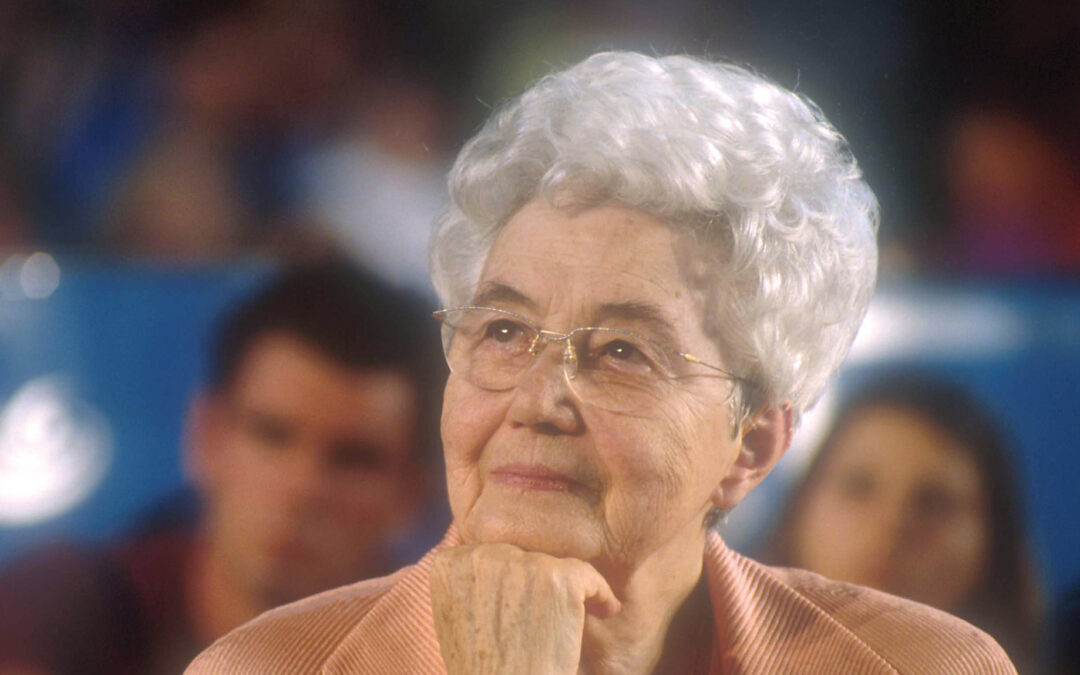
Feb 7, 2016 | Non categorizzato
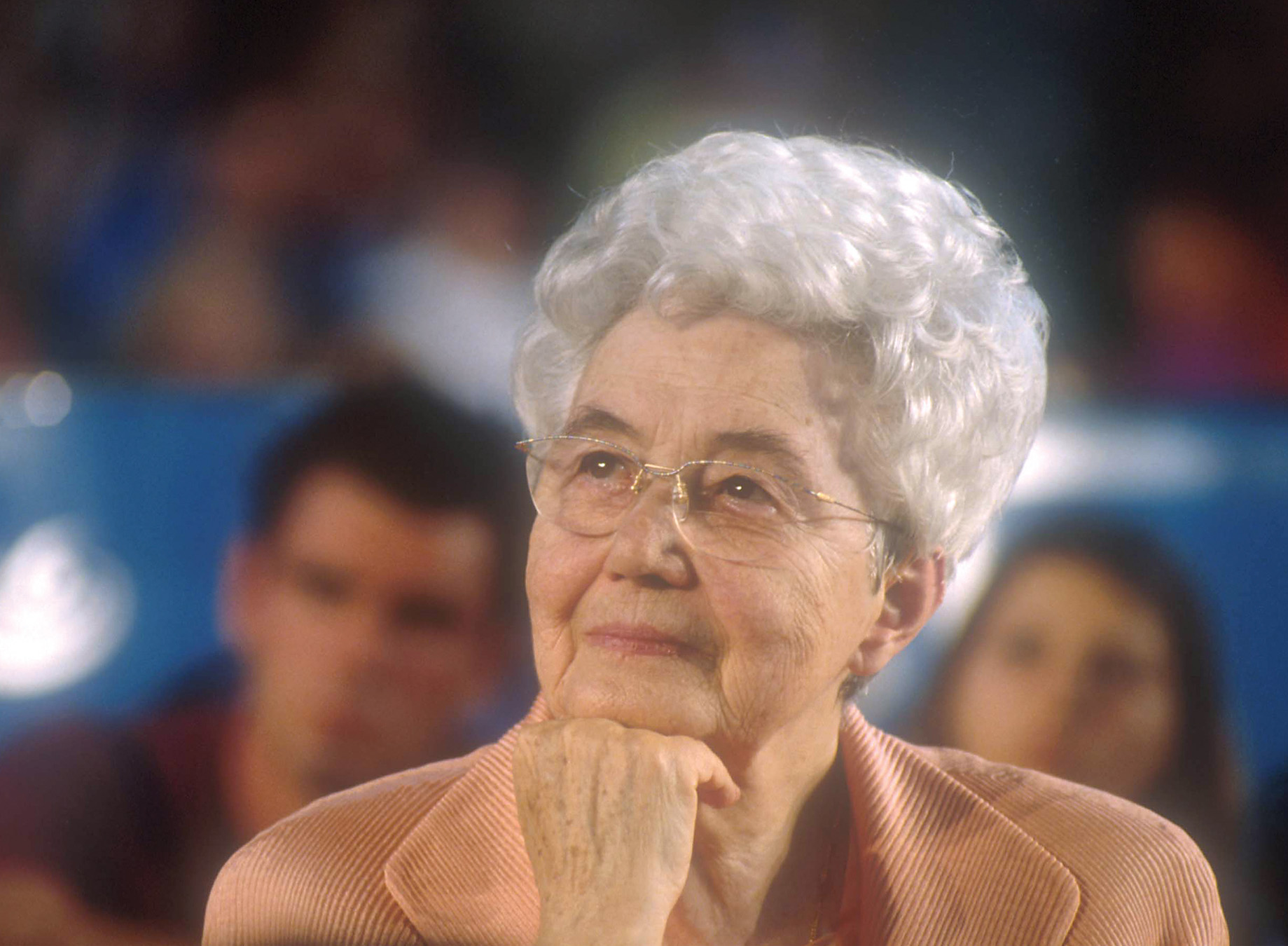 (…)“Let among you who is without sin be the first to throw a stone at her”
(…)“Let among you who is without sin be the first to throw a stone at her” (Jn 8:7). Jesus said this to those who wanted to stone the adulteress. The central idea in Jesus’ commands is always love. This is why he doesn’t want us Christians to condemn anyone. In fact he says, “Do not judge,” and proclaims, “Blessed are the merciful.” Jesus wants mercy. Nevertheless, from what he says one could conclude that there is someone who could throw the first stone: whoever is without sin.
This is certainly not one of us, we are all sinners. But there is a person who is without sin. And we know who she is: the Mother of God. Could Mary, then, “throw a stone” at someone who erred? Did she ever do such a thing when she was on earth?
We know our Mother. We know what Scripture says about her, what Tradition has handed down to us about her, what the People of God have always thought about her. Mary loves everyone. She is merciful She is the advocate of the most unfortunate. It is to her that countless Christians have turned, when they have had the impression that God’s justice was upon them. Mary does not throw stones. Quite the contrary, no one except Jesus spreads love the way she does. Why? Because she is a mother, and mothers only know how to love. It is typical of a mother to love her children as herself, because there’s something of herself in them. … We too can find something of ourselves in others. For we must see Jesus in ourselves and in every neighbour.
What shall we do? With each neighbor, at home, at work, or on the street, with the people we talk; with those we speak to over the phone, or for whom we carry out our daily work – with every person we meet these days, we must think: “I must act as if I were his or her mother,” and act accordingly. Mothers are always serving, Mothers always find excuses for their children. Mothers are always full of hope.
“As if I were his or her mother”, this is thought which must be foremost in our minds these days. This must be our resolution, if we want to be sure not to throw stones: and to be Mary’s presence here on earth for everyone we meet. Chiara Lubich Rocca di Papa, 3rd March 1983 Source: Chiara Lubich Centre
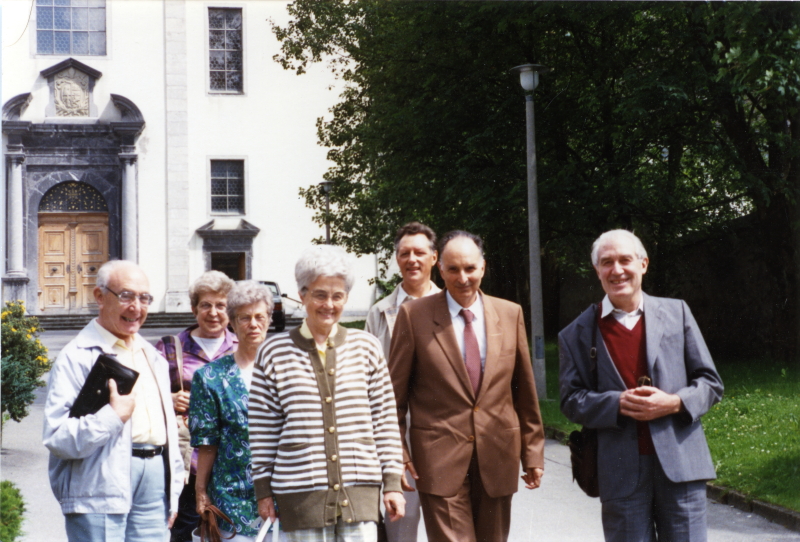
Feb 6, 2016 | Non categorizzato
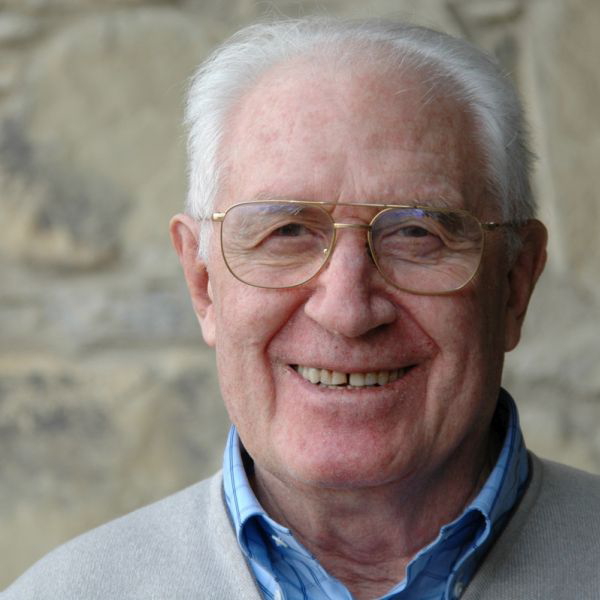 Card. Giuseppe Betori, Archbishop of Florence traced an important phase of his story, and described him as «A promoter of proactive communion between the various groups and associations,» who «interpreted the hope of Cardinal Benelli and Chiara Lubich» for the creation of the Giorgio La Pira International Students’ Centre in Florence at the turn of the 1970s. In fact, Giorgio Martelli, a native of Pistoia, Tuscany, gave a decisive contribution to the birth of this joint project between the Florentine Archdiocese and the Focolare Movement, which up to today continues its commitment to the «youth from all the nations worldwide, especially the developing countries, fostering fraternal acceptance and promoting dialogue between people of all cultures and creeds.» The story of the La Pira Centre is one of the important stories that has crossed the life of Turnea (the name Chiara Lubich gave him and that described his: Turris Eburnea, Tower of Ivory, taken from the Marian litanies). Born into a working-class family, Turnea was brought up with a simple faith, moral rectitude and thirst for justice. As a young man he was active in the Catholic Action where he received a more solid Christian education. During the war, he and his father were caught twice in a round-up which condemned him to forced labour, from which he managed to escape. After the war he started working in the labour union as a clerk in the contracts and litigations office, and at the same time, took up his studies again and graduated as an industrial surveyor. During the Catholic Action period he met other youth active in Christian movements, among whom were Bruno Venturini, and Vitaliano Bulletti who also became focolarini. He himself commented on that period: «Before me were two aspects of Christian life that were alternatively a more personal aspect of the quest for a relationship with God, and a more social one concerning the need for fraternity among men, and the justice and struggles to reach them. But these were two separate spheres!!» His first meeting with the focolare came about in January 1950 when he first met Graziella De Luca, who had gone to his city to speak to some people about the experience of the newborn Focolare Movement. In the following months he went several times to Rome where he met, besides Chiara, the first focolare men and women. After an internal struggle that lasted a few months, he decided to become one of them, and after leaving his fiancée and family – amid great misunderstandings – he moved to Rome, and joined the first men’s focolare house. Subsequently, he lived in various focolare houses in Italy and Holland .
Card. Giuseppe Betori, Archbishop of Florence traced an important phase of his story, and described him as «A promoter of proactive communion between the various groups and associations,» who «interpreted the hope of Cardinal Benelli and Chiara Lubich» for the creation of the Giorgio La Pira International Students’ Centre in Florence at the turn of the 1970s. In fact, Giorgio Martelli, a native of Pistoia, Tuscany, gave a decisive contribution to the birth of this joint project between the Florentine Archdiocese and the Focolare Movement, which up to today continues its commitment to the «youth from all the nations worldwide, especially the developing countries, fostering fraternal acceptance and promoting dialogue between people of all cultures and creeds.» The story of the La Pira Centre is one of the important stories that has crossed the life of Turnea (the name Chiara Lubich gave him and that described his: Turris Eburnea, Tower of Ivory, taken from the Marian litanies). Born into a working-class family, Turnea was brought up with a simple faith, moral rectitude and thirst for justice. As a young man he was active in the Catholic Action where he received a more solid Christian education. During the war, he and his father were caught twice in a round-up which condemned him to forced labour, from which he managed to escape. After the war he started working in the labour union as a clerk in the contracts and litigations office, and at the same time, took up his studies again and graduated as an industrial surveyor. During the Catholic Action period he met other youth active in Christian movements, among whom were Bruno Venturini, and Vitaliano Bulletti who also became focolarini. He himself commented on that period: «Before me were two aspects of Christian life that were alternatively a more personal aspect of the quest for a relationship with God, and a more social one concerning the need for fraternity among men, and the justice and struggles to reach them. But these were two separate spheres!!» His first meeting with the focolare came about in January 1950 when he first met Graziella De Luca, who had gone to his city to speak to some people about the experience of the newborn Focolare Movement. In the following months he went several times to Rome where he met, besides Chiara, the first focolare men and women. After an internal struggle that lasted a few months, he decided to become one of them, and after leaving his fiancée and family – amid great misunderstandings – he moved to Rome, and joined the first men’s focolare house. Subsequently, he lived in various focolare houses in Italy and Holland .  In 1968 Turnea he was appointed by Chiara as the first person to take charge of the newborn branch of the Volunteers of God. At their conventions Turnea encouraged moments of debate on issues and queries regarding the concretisation of the spirituality of unity in daily life. He often repeated Chiara’s affirmations: The Volunteers in our time have to take after the first Christians. For many years he dedicated himself to that Focolare aspect called harmony and environment and which concerned the construction works, the towns, the Mariapolis Centres, art and social works. It was a role he covered with passion, love and devotion also in the numerous trips and visits to various countries. Turnea endowed his efforts, tenacity and love also in many other fields: at the start of the Youth for a United World Movement, and in supporting the Santa Chiara Audiovisual Centre and the international Gen Rosso band. Free from specific assignments from 2008, he continued to give his contribution with advice and ideas. As a priest, he stood by many focolarini, especially those in suffering, and for whom he regularly celebrated the Holy Mass. In 2012 he was struck by a disease that caused a motor disability, which he bore, however, with his proverbial grit and his love for Jesus Forsaken and Abandoned. Regarding the last years, his long-time friend, Bruno Venturini recounted: «He would gather all his strength to try to be active, and was still willing to help. At times, after a difficult day he didn’t have the strength to get up and I would find him at the computer, checking his mail. At the same time he was always committed to accepting from God with serenity, this state of weakness and inactivity. He was never resigned and received all those who came to see him with joy. He spoke with great presence of mind and often with great effort, about all the most various topics one or the other was involved in. He never forgot to express his deep thoughts which showed his interior state, his full adhesion to God’s will: his heavenly thoughts.» On 26 January Turnea concluded his earthly journey. Focolare President Maria Voce wrote: We have «another giant» among the first focolarini. Maria Chiara de Lorenzo
In 1968 Turnea he was appointed by Chiara as the first person to take charge of the newborn branch of the Volunteers of God. At their conventions Turnea encouraged moments of debate on issues and queries regarding the concretisation of the spirituality of unity in daily life. He often repeated Chiara’s affirmations: The Volunteers in our time have to take after the first Christians. For many years he dedicated himself to that Focolare aspect called harmony and environment and which concerned the construction works, the towns, the Mariapolis Centres, art and social works. It was a role he covered with passion, love and devotion also in the numerous trips and visits to various countries. Turnea endowed his efforts, tenacity and love also in many other fields: at the start of the Youth for a United World Movement, and in supporting the Santa Chiara Audiovisual Centre and the international Gen Rosso band. Free from specific assignments from 2008, he continued to give his contribution with advice and ideas. As a priest, he stood by many focolarini, especially those in suffering, and for whom he regularly celebrated the Holy Mass. In 2012 he was struck by a disease that caused a motor disability, which he bore, however, with his proverbial grit and his love for Jesus Forsaken and Abandoned. Regarding the last years, his long-time friend, Bruno Venturini recounted: «He would gather all his strength to try to be active, and was still willing to help. At times, after a difficult day he didn’t have the strength to get up and I would find him at the computer, checking his mail. At the same time he was always committed to accepting from God with serenity, this state of weakness and inactivity. He was never resigned and received all those who came to see him with joy. He spoke with great presence of mind and often with great effort, about all the most various topics one or the other was involved in. He never forgot to express his deep thoughts which showed his interior state, his full adhesion to God’s will: his heavenly thoughts.» On 26 January Turnea concluded his earthly journey. Focolare President Maria Voce wrote: We have «another giant» among the first focolarini. Maria Chiara de Lorenzo
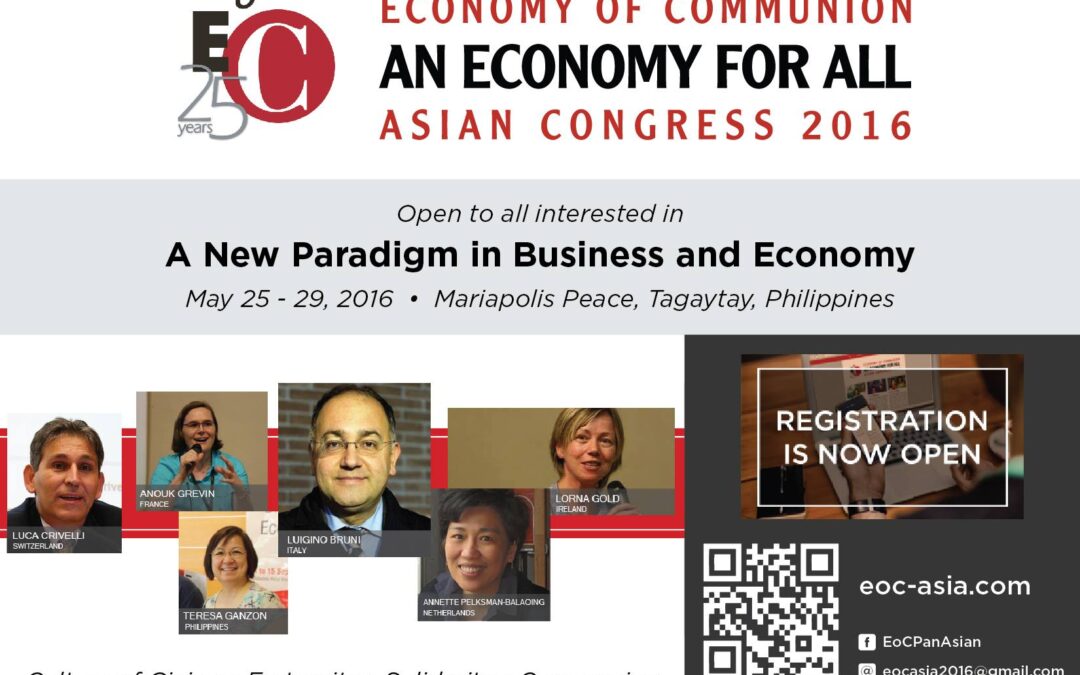
Feb 5, 2016 | Non categorizzato
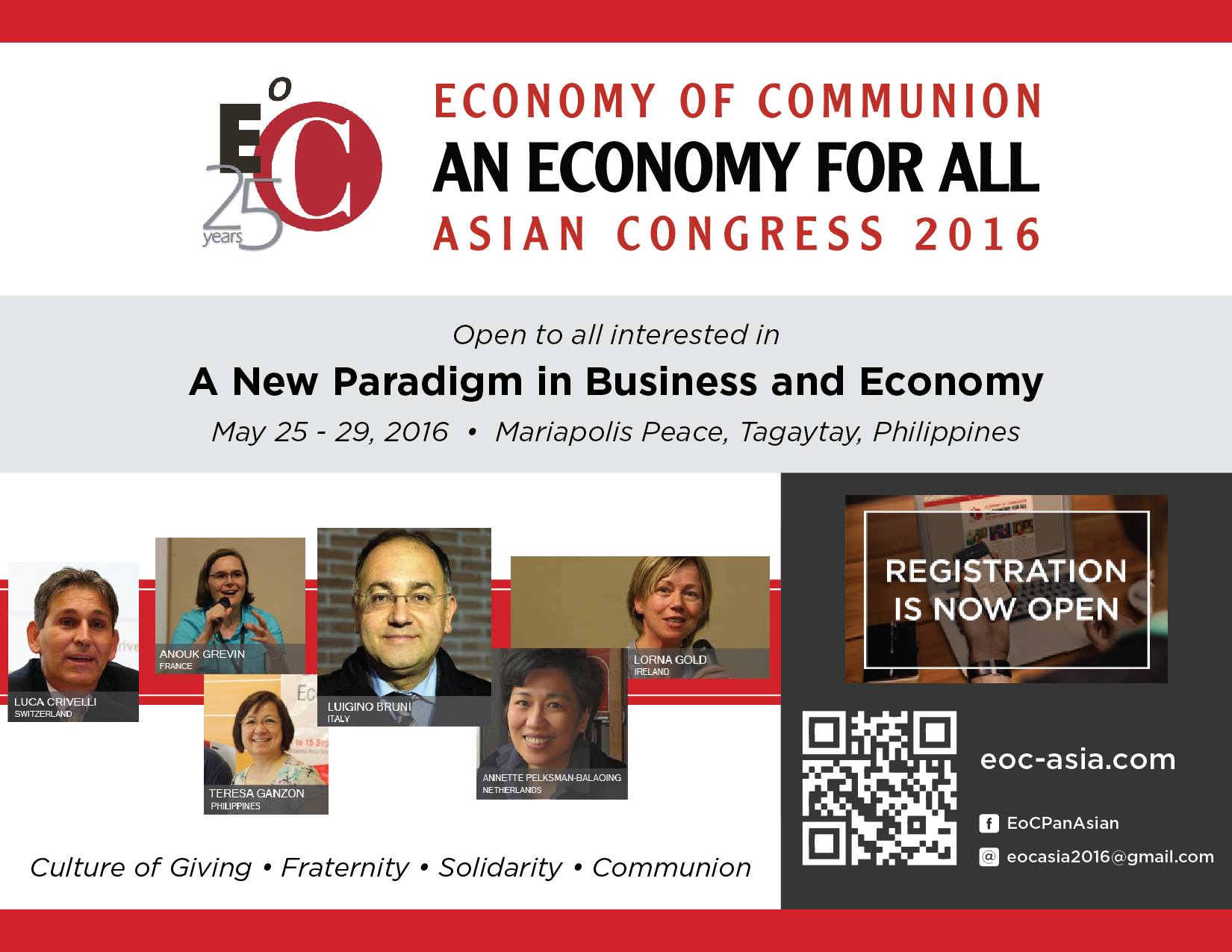 Invited are all interested advocates of a different way of viewing economy and doing business that is characterized by communion, fraternity and solidarity, especially with the weakest sectors of society. The congress hopes to bring together entrepreneurs, professors, young people and members of civil society with a passion for changing the business world, understanding in depth the challenges facing Asian nations despite the unprecedented economic growth of the past years, due to a continued adherence to the capitalist model and concept of economics – and what the economy of communion can offer to make the changes more meaningful and inclusive. Economists expected to be give their inputs in the congress include members of the international commission – Luigino Bruni (Italy), Anouk Grevin (France), Lorna Gold (Ireland), Teresa Ganzon (Philippines) and Luca Crivelli (Switzerland). Invited as a guest lecturer also is Dr. Annette Pelksman-Balaoing of the University of Rotterdam, Netherlands, to give a perspective on Globalization and how it has affected Asian nations in the past decade. It is expected to draw participants from different nations in Asia, as well as Australia. Live streaming playlist 25-29 May The EOC Pan Asian Congress will also have a celebration of EOC’s 25th anniversary on May 28th, even of the actual anniversary date on the 29th. Go to the EoC Asia web-site Register: More info: eocasia2016@gmail.com
Invited are all interested advocates of a different way of viewing economy and doing business that is characterized by communion, fraternity and solidarity, especially with the weakest sectors of society. The congress hopes to bring together entrepreneurs, professors, young people and members of civil society with a passion for changing the business world, understanding in depth the challenges facing Asian nations despite the unprecedented economic growth of the past years, due to a continued adherence to the capitalist model and concept of economics – and what the economy of communion can offer to make the changes more meaningful and inclusive. Economists expected to be give their inputs in the congress include members of the international commission – Luigino Bruni (Italy), Anouk Grevin (France), Lorna Gold (Ireland), Teresa Ganzon (Philippines) and Luca Crivelli (Switzerland). Invited as a guest lecturer also is Dr. Annette Pelksman-Balaoing of the University of Rotterdam, Netherlands, to give a perspective on Globalization and how it has affected Asian nations in the past decade. It is expected to draw participants from different nations in Asia, as well as Australia. Live streaming playlist 25-29 May The EOC Pan Asian Congress will also have a celebration of EOC’s 25th anniversary on May 28th, even of the actual anniversary date on the 29th. Go to the EoC Asia web-site Register: More info: eocasia2016@gmail.com
The YouTube links are: For Day 1, 25 May to Day 5, 29 May: Link to the playlist of the whole meeting: https://www.youtube.com/playlist?list=PLseXirhCvXpHfSeiIcXBqicR4Hfl4dxuB EoC 25° Anniversary Event – EoC Asian Congress 2016 (9:00PM – 10:00 PM Philippines time) https://youtu.be/pQpqh4REvWc
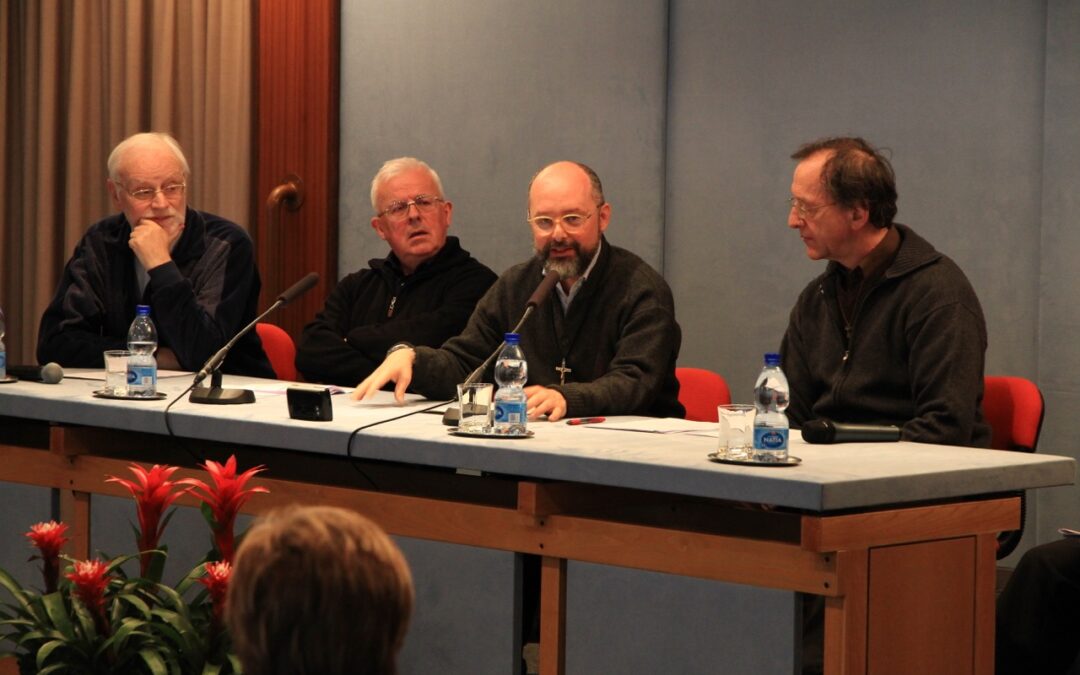
Feb 2, 2016 | Non categorizzato
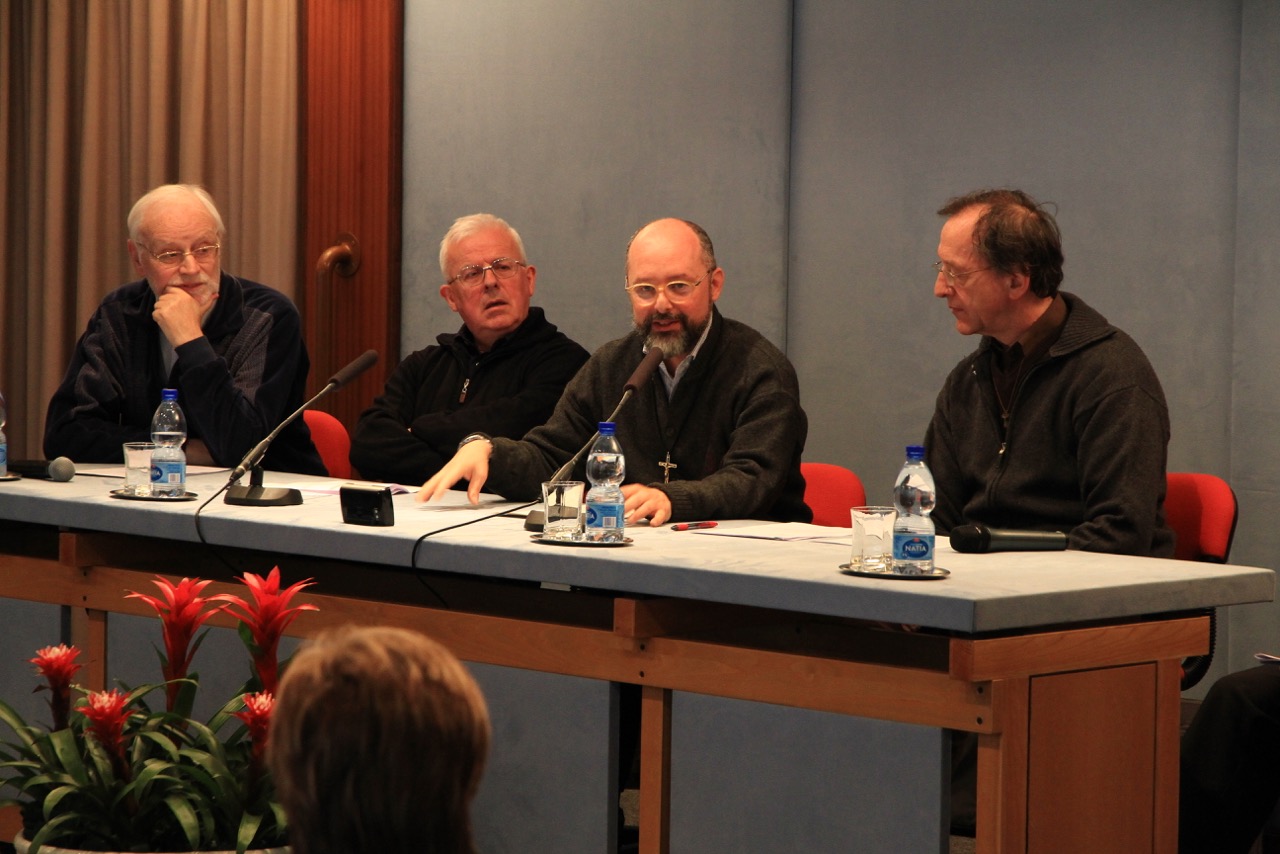 Fr Salvo, could you draw a conclusion to this regard? «It was the endowment of a very strong grace that touched also the ample strata of the Church, besides of course, affecting all the consecrated members. Pope Francis imbued this year with particularly inspiring thoughts and events also through the Congregation for the Institutes of Consecrated Life and the Apostolic Life Societies (CIVCSVA). Of course it is still too early to take stock of everything, since I am convinced that it was an in-depth event and the fruits will be fully seen as time passes.» What role did the Religious members of the Focolare play? «The particular sensitivity to unity, typical of Chiara Lubich’s spirituality, offers to the members of the Movement, a sort of know-how that inspires them to give priority to relationships and transform them into communion. The religious men and women belonging to the Focolare committed themselves to the initiatives of their communities and dioceses, or to national activities and those of the universal Church, giving their imprint of communion, a spirit the Church hoped would develop more and more as the “home and school of communion.” In one of the European countries, it was precisely the religious and consecrated people of the Movement who proposed the project of an encounter for consecrated youth, to the Conference of Major Superiors. The heads highly appreciated the contents and methods, so as to make it their own initiative. Around 250 young religious participated, with really important impressions and results.» And with regard to the initiatives set up by the Holy Father and the Congregation of Consecrated Life? Great importance was given to Pope Francis’s invitation to show the joy of consecrated life and to prophetically act in the “existential outskirts,” as expressed in his Apostolic Letter to all the consecrated men and women: “I expect you to «wake the world up», because the typical feature of consecrated life is prophecy.” He thus underlined a specific attribute of Religious Life characterised by that of being harbingers of charismas, that is, of gifts for the good of the entire Church. TCIVCSVA then developed the thoughts of Pope Francis with three letters: one dedicated to Joy which must distinguish the consecrated religious (Rejoice); another dealing with their capacity to be prophets for the world (Keep Watch); and the third, a contemplative dimension of their life (Contemplate). These three documents are a reference point for the future of Consecrated Life in the Church. As to the events, we certainly must note the meeting in Rome of the young religious last September. It was a convention of great impact, with 5,000 participants from all over the world, and lasted 4 days. It is not something we see often. It also impressed me because of the significance of the ecumenical Dialogue of religious men and women held from 22 to 25 January 2015. This was an absolute “first” in the Vatican, which Pope Francis wanted so much, and a sign of the progress of the journey among Christians of various denominations. Fr. José M. Hernández, a Claretian, said that each one is called to “be a bridge and not a trench” among Christians. I think this is a good augur which well expresses the rest of the journey we still have to undertake.»
Fr Salvo, could you draw a conclusion to this regard? «It was the endowment of a very strong grace that touched also the ample strata of the Church, besides of course, affecting all the consecrated members. Pope Francis imbued this year with particularly inspiring thoughts and events also through the Congregation for the Institutes of Consecrated Life and the Apostolic Life Societies (CIVCSVA). Of course it is still too early to take stock of everything, since I am convinced that it was an in-depth event and the fruits will be fully seen as time passes.» What role did the Religious members of the Focolare play? «The particular sensitivity to unity, typical of Chiara Lubich’s spirituality, offers to the members of the Movement, a sort of know-how that inspires them to give priority to relationships and transform them into communion. The religious men and women belonging to the Focolare committed themselves to the initiatives of their communities and dioceses, or to national activities and those of the universal Church, giving their imprint of communion, a spirit the Church hoped would develop more and more as the “home and school of communion.” In one of the European countries, it was precisely the religious and consecrated people of the Movement who proposed the project of an encounter for consecrated youth, to the Conference of Major Superiors. The heads highly appreciated the contents and methods, so as to make it their own initiative. Around 250 young religious participated, with really important impressions and results.» And with regard to the initiatives set up by the Holy Father and the Congregation of Consecrated Life? Great importance was given to Pope Francis’s invitation to show the joy of consecrated life and to prophetically act in the “existential outskirts,” as expressed in his Apostolic Letter to all the consecrated men and women: “I expect you to «wake the world up», because the typical feature of consecrated life is prophecy.” He thus underlined a specific attribute of Religious Life characterised by that of being harbingers of charismas, that is, of gifts for the good of the entire Church. TCIVCSVA then developed the thoughts of Pope Francis with three letters: one dedicated to Joy which must distinguish the consecrated religious (Rejoice); another dealing with their capacity to be prophets for the world (Keep Watch); and the third, a contemplative dimension of their life (Contemplate). These three documents are a reference point for the future of Consecrated Life in the Church. As to the events, we certainly must note the meeting in Rome of the young religious last September. It was a convention of great impact, with 5,000 participants from all over the world, and lasted 4 days. It is not something we see often. It also impressed me because of the significance of the ecumenical Dialogue of religious men and women held from 22 to 25 January 2015. This was an absolute “first” in the Vatican, which Pope Francis wanted so much, and a sign of the progress of the journey among Christians of various denominations. Fr. José M. Hernández, a Claretian, said that each one is called to “be a bridge and not a trench” among Christians. I think this is a good augur which well expresses the rest of the journey we still have to undertake.»
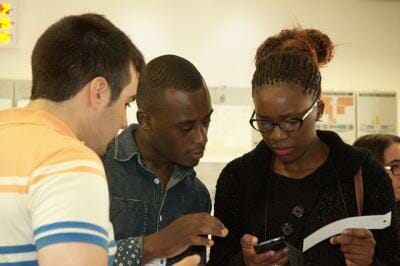
Jan 29, 2016 | Non categorizzato
 «I’m African and studying in Northern Italy. Some time ago I read an article in a magazine, in which the author said that a “dark night” is pervading every aspect of western culture, leading to a loss of the authentic Christian values. Sincerely, I did not understand what this meant, until something happened to open my eyes. It was a Saturday afternoon. Some kids, neighbours of mine, invited me to go out with them and spend an evening together. They wanted to do something different. There were six or seven of us and we started the evening dancing in a local disco. Initially I enjoyed it and they said music ran in my blood, and I danced well. But soon I noticed that the people around me were dancing without any respect for themselves or for the others. They were not dancing for pure enjoyment but were launching ambiguous messages. A small voice inside me told me to go against the current and dance with dignity and out of love. After a few hours, my friends suggested we go to another club. I trusted them since they were my friends, and so I accepted. In this other club it did not take long for me to realize where we had landed. The music was very loud, psychedelic lights pulsed to the rhythm, an acrid smell started to diffuse, and I was astonished. This was not a normal disco, and the girls prostituted themselves. I was disappointed and angry. Without saying a word, I turned on my heel and left. One of my friends came after me. He insulted me, saying I was slow in the head. I did not answer. After a few minutes, another one came, but this time he did not insult me, but said I was right. Lastly, another sneaked out of the club and also he said I was right. I was surprised. I had created a countercurrent chain. Without even speaking of the Christian ideals I believe in, or of God, the others had seen and understood. A few months passed and I had completely forgotten that episode. One day, a boy, who had been with us that evening, came to me saying he regretted it and would never again frequent that type of club. I was astonished. Evidently, Jesus was working on him. This experience has helped me to see in a more radical way, the need to risk and say “no” to certain proposals of the world, because it is our testimony that strikes people, even though we are unaware of it.» (Yves, Cameroon) From “Una buona notizia, gente che crede gente che muove”, Chiara Favotti, Ed. New City 2012
«I’m African and studying in Northern Italy. Some time ago I read an article in a magazine, in which the author said that a “dark night” is pervading every aspect of western culture, leading to a loss of the authentic Christian values. Sincerely, I did not understand what this meant, until something happened to open my eyes. It was a Saturday afternoon. Some kids, neighbours of mine, invited me to go out with them and spend an evening together. They wanted to do something different. There were six or seven of us and we started the evening dancing in a local disco. Initially I enjoyed it and they said music ran in my blood, and I danced well. But soon I noticed that the people around me were dancing without any respect for themselves or for the others. They were not dancing for pure enjoyment but were launching ambiguous messages. A small voice inside me told me to go against the current and dance with dignity and out of love. After a few hours, my friends suggested we go to another club. I trusted them since they were my friends, and so I accepted. In this other club it did not take long for me to realize where we had landed. The music was very loud, psychedelic lights pulsed to the rhythm, an acrid smell started to diffuse, and I was astonished. This was not a normal disco, and the girls prostituted themselves. I was disappointed and angry. Without saying a word, I turned on my heel and left. One of my friends came after me. He insulted me, saying I was slow in the head. I did not answer. After a few minutes, another one came, but this time he did not insult me, but said I was right. Lastly, another sneaked out of the club and also he said I was right. I was surprised. I had created a countercurrent chain. Without even speaking of the Christian ideals I believe in, or of God, the others had seen and understood. A few months passed and I had completely forgotten that episode. One day, a boy, who had been with us that evening, came to me saying he regretted it and would never again frequent that type of club. I was astonished. Evidently, Jesus was working on him. This experience has helped me to see in a more radical way, the need to risk and say “no” to certain proposals of the world, because it is our testimony that strikes people, even though we are unaware of it.» (Yves, Cameroon) From “Una buona notizia, gente che crede gente che muove”, Chiara Favotti, Ed. New City 2012


 (…)“Let among you who is without sin be the first to throw a stone at her” (Jn 8:7). Jesus said this to those who wanted to stone the adulteress. The central idea in Jesus’ commands is always love. This is why he doesn’t want us Christians to condemn anyone. In fact he says, “Do not judge,” and proclaims, “Blessed are the merciful.” Jesus wants mercy. Nevertheless, from what he says one could conclude that there is someone who could throw the first stone: whoever is without sin. This is certainly not one of us, we are all sinners. But there is a person who is without sin. And we know who she is: the Mother of God. Could Mary, then, “throw a stone” at someone who erred? Did she ever do such a thing when she was on earth? We know our Mother. We know what Scripture says about her, what Tradition has handed down to us about her, what the People of God have always thought about her. Mary loves everyone. She is merciful She is the advocate of the most unfortunate. It is to her that countless Christians have turned, when they have had the impression that God’s justice was upon them. Mary does not throw stones. Quite the contrary, no one except Jesus spreads love the way she does. Why? Because she is a mother, and mothers only know how to love. It is typical of a mother to love her children as herself, because there’s something of herself in them. … We too can find something of ourselves in others. For we must see Jesus in ourselves and in every neighbour. What shall we do? With each neighbor, at home, at work, or on the street, with the people we talk; with those we speak to over the phone, or for whom we carry out our daily work – with every person we meet these days, we must think: “I must act as if I were his or her mother,” and act accordingly. Mothers are always serving, Mothers always find excuses for their children. Mothers are always full of hope. “As if I were his or her mother”, this is thought which must be foremost in our minds these days. This must be our resolution, if we want to be sure not to throw stones: and to be Mary’s presence here on earth for everyone we meet. Chiara Lubich Rocca di Papa, 3rd March 1983 Source: Chiara Lubich Centre
(…)“Let among you who is without sin be the first to throw a stone at her” (Jn 8:7). Jesus said this to those who wanted to stone the adulteress. The central idea in Jesus’ commands is always love. This is why he doesn’t want us Christians to condemn anyone. In fact he says, “Do not judge,” and proclaims, “Blessed are the merciful.” Jesus wants mercy. Nevertheless, from what he says one could conclude that there is someone who could throw the first stone: whoever is without sin. This is certainly not one of us, we are all sinners. But there is a person who is without sin. And we know who she is: the Mother of God. Could Mary, then, “throw a stone” at someone who erred? Did she ever do such a thing when she was on earth? We know our Mother. We know what Scripture says about her, what Tradition has handed down to us about her, what the People of God have always thought about her. Mary loves everyone. She is merciful She is the advocate of the most unfortunate. It is to her that countless Christians have turned, when they have had the impression that God’s justice was upon them. Mary does not throw stones. Quite the contrary, no one except Jesus spreads love the way she does. Why? Because she is a mother, and mothers only know how to love. It is typical of a mother to love her children as herself, because there’s something of herself in them. … We too can find something of ourselves in others. For we must see Jesus in ourselves and in every neighbour. What shall we do? With each neighbor, at home, at work, or on the street, with the people we talk; with those we speak to over the phone, or for whom we carry out our daily work – with every person we meet these days, we must think: “I must act as if I were his or her mother,” and act accordingly. Mothers are always serving, Mothers always find excuses for their children. Mothers are always full of hope. “As if I were his or her mother”, this is thought which must be foremost in our minds these days. This must be our resolution, if we want to be sure not to throw stones: and to be Mary’s presence here on earth for everyone we meet. Chiara Lubich Rocca di Papa, 3rd March 1983 Source: Chiara Lubich Centre 
 Card. Giuseppe Betori, Archbishop of Florence traced an important phase of his story, and described him as «A promoter of proactive communion between the various groups and associations,» who «interpreted the hope of Cardinal Benelli and Chiara Lubich» for the creation of the
Card. Giuseppe Betori, Archbishop of Florence traced an important phase of his story, and described him as «A promoter of proactive communion between the various groups and associations,» who «interpreted the hope of Cardinal Benelli and Chiara Lubich» for the creation of the



